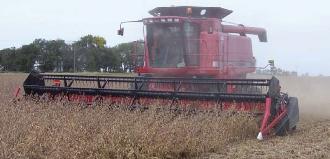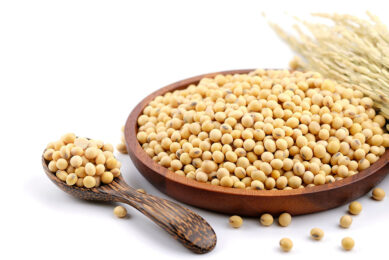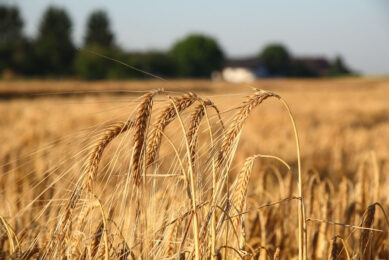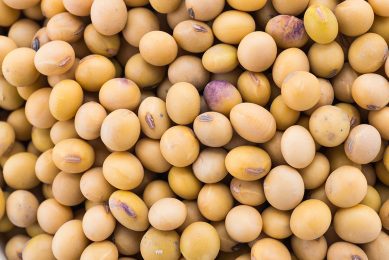Concern over viability of EU livestock sector

The EU livestock industry has been forced into significant losses in the marketing year 2007/2008 with rising grain prices while meat and milk prices have not kept up. The poor 2007 harvest has been the key problem, but the inability to import feedstuffs from around the world due to GM-concerns also had a significant cost impact.
By Emma Cardy-Brown, Cardy-Brown & Co Ltd, UK
New GM maize varieties have been approved and grown elsewhere in the world, but have not yet been approved in the EU. Zero tolerance on new GM unapproved EU varieties have practically stopped the import of corn gluten feed and distillers dried grains (DDGs) as valuable feed ingredients, in a year of shortages. If the authorisation process continues to take longer than in major export countries, Europe will isolate itself from the global market place. In a joint effort, the European Grain Traders Association (COCERAL), the European Feed Manufacturers
(FEFAC) and the European Livestock and Meat Trading Union (UECBV) sent a case study report to EU Commission President Dr Barroso and members of the GM Sherpa group, estimating this cost for the livestock industry at 10-15% of the total loss or more than €2.5 billion.
With soybeans supplies in Argentina and USA being 95-97% GM and in Brazil heading for 80%, the supply chain will quickly lead to the presence of technically unavoidable residues with these new GM varieties. This would apply to non GM as well as GM supplies. A zero tolerance means that imported soya would be severely restricted as shippers will not take the risk in importing the goods.
Impacts of ‘not yet EU-authorised’ GMs Market development is growing at a much faster pace than regulation developments. This can be illustrated as follows:
• Feed imports in the EU are lost due to Low-Level (LL) presence of not yet approved EU events (US maize, corn gluten feed, dried distillers grains, Canadian rapeseed meal)
• The new RoundUp Ready 2 Yield event for soybeans represents the latest GM event to threaten European feed security. Currently 70 GM events for maize, rape and soya are awaiting approval and this figure is expected to move rapidly to more than 100 over the next two years. Only 17 events are authorised in the Europe for food and feed use.
• The European Union has adopted a zero tolerance stance towards the import of biotech events not yet approved in the European Union.
• Monsanto’s first generation RoundUp Ready technology already enjoys a market share of 95% of GM soybean acreage. The new Roundup Ready Yield (RR2Y) seeds provide a strong yield increase (8-11%/hectare) as well as herbicide tolerance. Uptake is expected to happen as fast as Monsanto can multiply the seeds.
• New global consumer markets have emerged, such as China. Brazil, Argentina and the US, traditionally the major suppliers to the EU, are no longer obliged to cater to strict European requirements whilst there are bigger and faster growing markets to supply. European feed supply security is threatened by the EU zero-tolerance policy due to the potential presence of RR2Y trace levels in feed imports. If the authorisation process continues to take longer than in major export countries Europe will isolate itself from the global market place. Europe is dependent on raw material supplies and any substitutes that could be used to replace Europe’s consumption of soybean meal (SBM) are simply not available in quantities sufficient to replace even 10% of Europe’s consumption of soybeans.
Europe as importer
The EU is the world’s largest importer of soybean meal, which has provided leverage to specify production practices in the past. Now that China has taken a more significant role as the world’s largest importer of both whole beans and soybean oil, Europe has lost much of its historic market leverage. However Europe continues to import large volumes of soybean meal which are focused on Europe’s major feed and meat producing nations. Substitutes for soybean meals are derived from rapeseed, sunflower, etc. and have much lower protein content levels. However, all of these alternatives have much higher levels of fibre. Substituting these other protein meals for soybean meal in the diets of pigs and poultry results in a much greater volume of manure and nitrogen emissions (ammonia). Hence, the substitutes potentially have a far greater impact on the environment. The US, Argentina and Brazil produce more than 90% of the world’s soybean exports. With GM soybeans as the dominant type of seed planted, it has become much more expensive to separate non- GM beans from GM beans, even in Brazil, once the major supplier of non-GM soybeans. Non-GM SBM has become a niche market and is therefore commanding large price premiums.
The RR2Y trait represents the tip of the iceberg while a great number of traits are currently in approval processes for planting between 2009 and 2010. By 2010, the availability of non-GM and authorised GM SBM from Brazil, Argentina or the USA will be less than 10% of current supplies. By 2010 South-American producers are expected to use stacked events (Bt/RR2Y) which are not yet in the EU authorisation process. Contrary to the situation in the EU stacked GM varieties do not need new approvals in key export countries.
Narrow margins add to vulnerability
The margins seen in pork production throughout Europe are extremely narrow. There is little leverage held by the producer to demand better prices for their produce despite increasing costs of production. The poultry margins are similarly vulnerable to increases in cost base as the feed costs represent 60-75% of the production costs. However during 2007 prices were stronger due to the loss of supply from Asia due to Avian Flu outbreaks. Meanwhile Brazil’s strategy for shifting the percentage of Brazilian exports more in favour of higher value meat instead of feed materials is developing well.
Europe’s restrictive import policy on GM feed imports and crippling impact on its domestic meat production is an excellent signal for Brazilian meat exports. Furthermore, the meat industry is unable to pass on higher costs. The retail market environment in Europe is one of extreme competition with only a small number of national players in most member states. A key to any retail competitive strategy is price. With this emphasis on supplying quality for less money, primary producers have consistently struggled to create profit in such a tough environment. The impact cost calculations of the feed and meat sector provide a clear indication that the EU Zero-tolerance policy has had significant impacts on profitability of the EU livestock sector: approximately 17% of the extra feed costs of €15 billion (marketing years 2006/2007) can be attributed to the zero-tolerance policy which translates in
to a share of approximately 10-15% in the total loss per pig carcass recorded by the meat processing industry in the marketing year 2007/08.
Outlook
Regarding the outlook for the marketing year 2008/2009, the EU livestock industry could face a massive loss of competitiveness. As the EU livestock production declines, then imports will increase. Ironically these imports would have been fed these “non-approved” GM products. Therefore, the EU has to take a practical view and implement a workable threshold for GM events. | The full report can be downloaded from the news section at www.cardy-brown.com
Source: Feed Tech magazine Volume 13. No. 1











